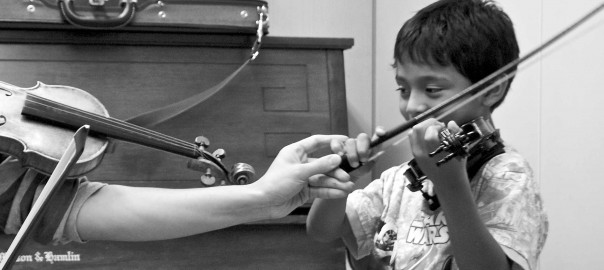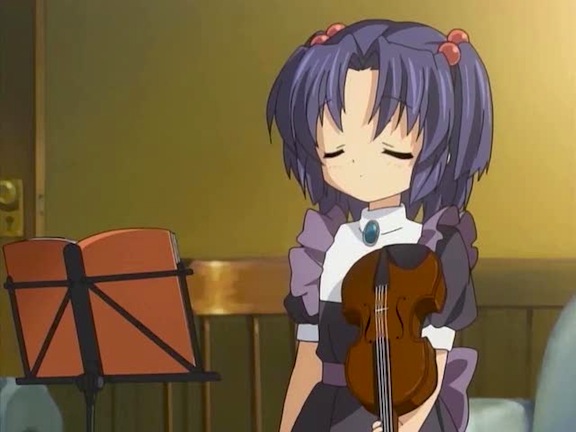The kids just hopped in the car on the way back from school and already the complaining begins. “I don’t want to practice music, it’s boring.” Once home, the the arguments pick up steam as notebooks and music are nowhere to be found. Finally the practice begins, through your kids gnashing teeth and still grumbling.
At this point even you are thinking: “I’m growing to hate this, and yes, it is boring. Truly, I’m tired of all the fighting. Maybe music isn’t for us. It’s weird, some families are doing just fine with their lessons”
Music’s Cancerous Warning Sign
When a student complains (or even fails to complain) of real boredom, it catches my ear and raises a red flag. Boredom is real, and it makes no sense to pretend it doesn’t matter. Kids won’t improve when they’re bored. Eventually they’ll quit music altogether, whether we like it or not.
Sometimes boredom is the result of “shutting down” when we feel completing a task is beyond our reach. In this case students tend to practice in a zombie-like endless repetition, without interest or engagement. Obviously, progress in this mode is painfully slow. More often, boredom during practice results from lack of variety or lack of challenge. Young or old, spending your day bored can poison any part of life, music practice included.
Talent Is Not Genetic
Plenty of kids no different than yours love and adore everything about their music experience. They’re zooming through their assignments and performing on stage with ease. They get their practicing done with a minimum of fuss, and wean their parents from the practice process at an early age.
What some parents call “talent” is simply identifying problems clearly and then quickly finding a solution that brings about a small improvement, on the spot.
Flip This Switch and Practice Changes Overnight
It’s simple. Practice only to improve, and to make progress right now! Set up your kids for easy success. Start with small problems, and short sessions, and let them enjoy their accomplishments in the moment. Do this every day and soon the practice habit becomes a pleasure.
Here’s what doesn’t work: shut your kid in a room for 30 minutes with a vague instruction about “learning your song.”
Start at Your Very Next Practice Session
- Before beginning a practice session make sure you and your kids know the “big picture” goal(s). Normally these goals will be provided by your music teacher, making it important to take good notes during the lesson. Never begin a practice session without a clear picture of the specific results you’re working for.
- I’ve found that during practice, a constant and clarifying “self-talk” can make all the difference. Ask your young student “are you practicing that spot for tone, rhythm or pitch?” a few dozen times, and he/she will begin to internalize that strategy.
- Build a “library” of problem solving routines or drills. These drills help you break down large problems into smaller pieces. Every teacher uses these drills, so pay attention during the lesson, and you’ll pick up some great ideas. Eventually, you’ll become adept at inventing your own drills, perfect for the musical problem at hand.
- Get kids inspired by exposing them to great music and musicians. Enjoy live concerts and videos. Give kids a role model, and a sense that music is more than just practice and lessons.
- Fill out a practice journal. Celebrate accomplishments in the moment and in writing. Make note where you need help from your teacher.
- Most of all, make music a daily priority. The rewards come when you decide that practice is on your “short list” of important projects. Go deep with this one project, and reduce the clutter of an over-busy life driving from one activity to another. Ironically, life can become richer by doing less.
A key thing to remember is that as much as the subject matter in my studio is centered around songs and the instrument, what I really want to teach is the ability to improve through practice. It’s a skill that is transferrable to any subject matter or goal in life.
What do you think? Have ideas like this worked for you?

